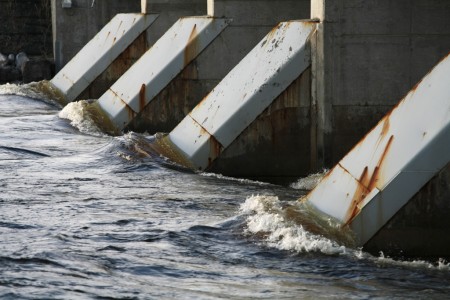It seems that the province of Ontario is leaning towards having Atomic Energy of Canada Limited (AECL) build their new nuclear reactors, provided the federal government provides some additional support. The recent history of the company isn’t very impressive, given their failure to get two comparatively simple isotope reactors to work, and giving the contract to a Canadian company makes it even more likely that Canadian taxpayers and ratepayers will end up subsidizing them.
Perhaps it would be wiser to give the contract to a French, American, or Japanese firm, and let their citizens help pay for our gigawatts. It seems plausible that using a design that is being implemented elsewhere will have price benefits: both in terms of economies of scale and in terms of learning from the experience of those who began building them earlier. AECL’s Advanced CANDU reactor has not yet been fully designed, and probably never will be unless it wins the competition in Ontario, besting France’s AREVA and Westinghouse, from the US.






